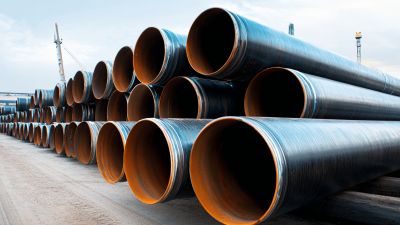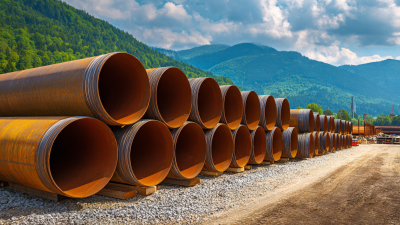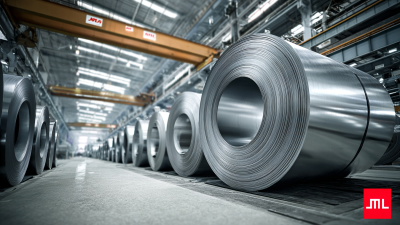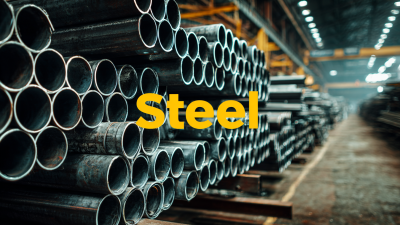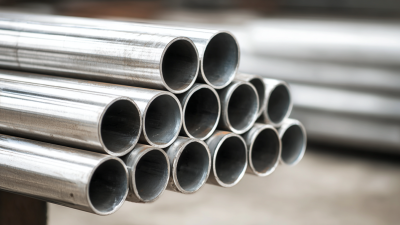In the evolving landscape of modern construction, the selection of materials plays a pivotal role in determining the success and sustainability of projects. Among the myriad options available, Carbon Pipe has emerged as a preferred choice, offering a remarkable combination of strength, durability, and cost-effectiveness. According to a report by the Global Construction Materials Market, the demand for Carbon Pipe has surged by over 25% in the past five years, driven largely by the increasing focus on sustainable building practices and innovative material solutions.
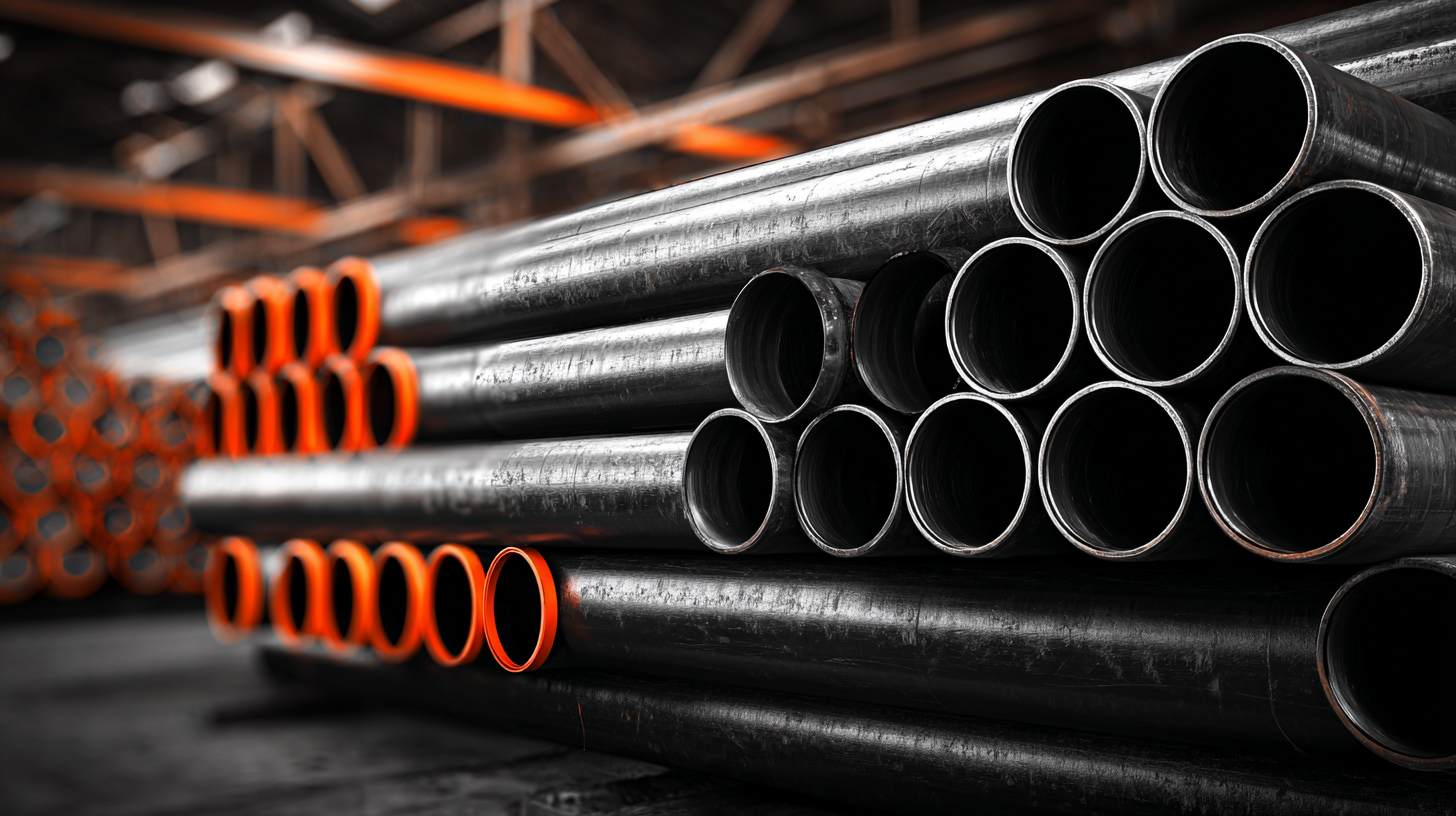
Renowned industry expert Dr. Emily Carter, a leading researcher in construction materials, states, "The unique properties of Carbon Pipe not only enhance the structural integrity of construction projects but also contribute to reducing the overall carbon footprint." This comment emphasizes the dual advantages of using Carbon Pipe: it not only meets the rigorous demands of modern engineering but also aligns with the global initiative towards greener construction techniques. As we explore the top ten benefits of using Carbon Pipe in contemporary construction, it becomes clear that this material is more than just a trend— it’s a fundamental building block for the future of the industry.
Carbon pipes have emerged as a vital component in modern construction projects, significantly enhancing durability and longevity. According to a report by the American Society of Civil Engineers, construction materials that incorporate carbon steel can increase the lifespan of infrastructure projects by up to 50%. This is particularly relevant in environments that experience extreme weather conditions, where traditional materials might fail sooner.
One of the key advantages of carbon pipe is its resistance to corrosion, particularly when treated with protective coatings. A study conducted by the National Institute of Standards and Technology revealed that carbon pipes can maintain structural integrity in corrosive environments for over 30 years, reducing the need for frequent replacements and maintenance. Moreover, the strength-to-weight ratio of carbon steel allows for more efficient designs, enabling engineers to optimize material use while still ensuring safety and durability. This combination of resilience and efficiency makes carbon pipe an indispensable choice for today's construction innovations.
Carbon pipe is increasingly becoming a favored choice in modern construction projects due to its ability to substantially reduce construction costs. This effectiveness is primarily attributed to its lightweight nature, which allows for easier handling and transportation. Contractors can save on labor costs and time, as fewer workers are required to manage the installation of carbon pipes compared to heavier materials. Additionally, the durability of carbon pipes translates into lower long-term maintenance expenses, as they are less prone to corrosion and wear over time.
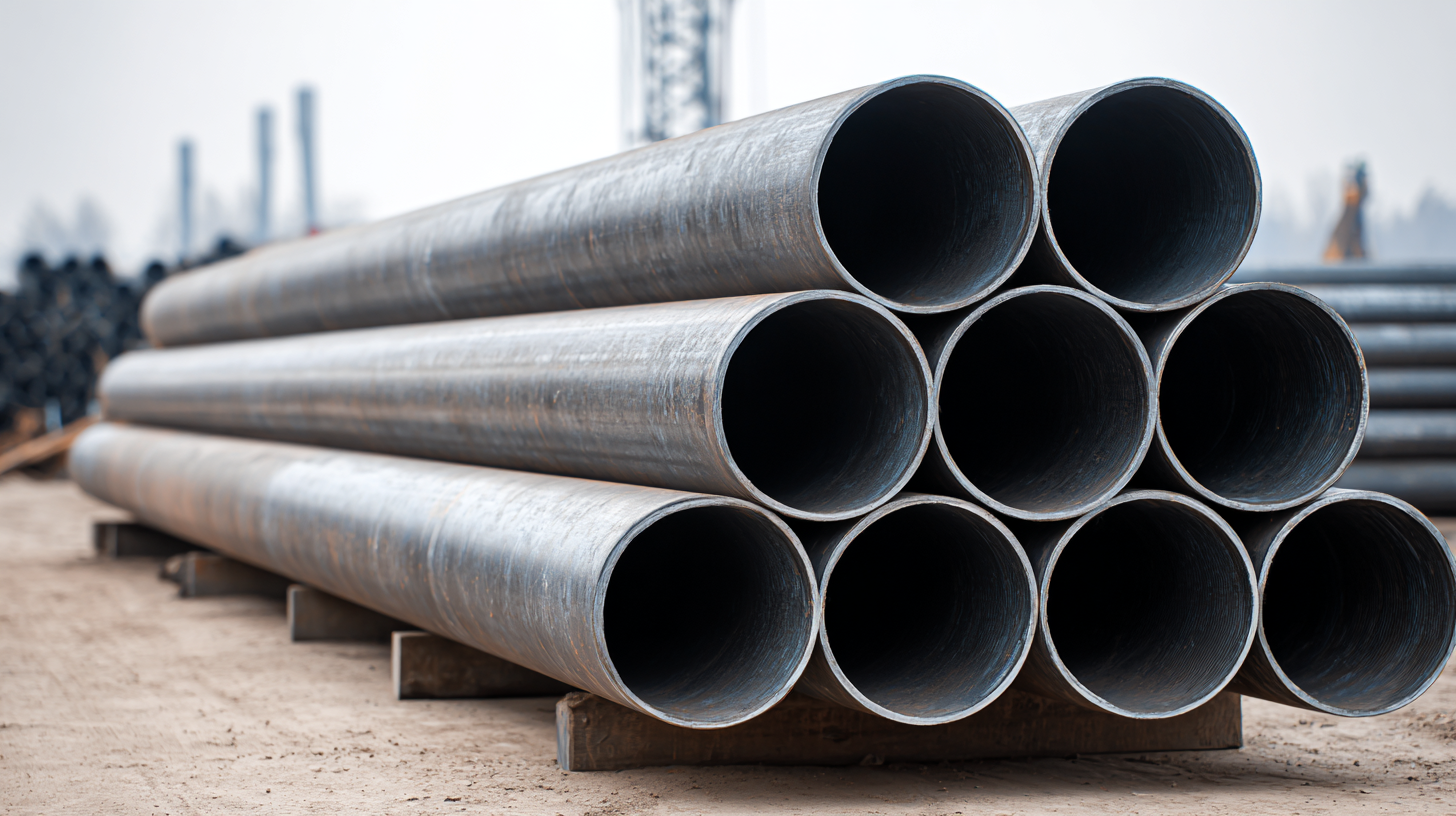
Moreover, the versatility of carbon pipes contributes significantly to cost savings in various construction applications. These pipes can be customized for different requirements, eliminating the need for multiple materials and associated expenses. This adaptability not only streamlines the procurement process but also minimizes waste, resulting in more economical project execution. Overall, the utilization of carbon pipes represents a strategic choice for construction firms aiming to optimize resources while maintaining quality and performance.
The use of carbon pipe solutions in modern construction projects is gaining traction, particularly in enhancing energy efficiency. This is increasingly important as funding for energy efficiency initiatives, such as the £107.7 million secured in grants and loans for 2024 to 2025, highlights a growing commitment to sustainable practices. Carbon pipes offer superior thermal insulation and durability, which can significantly lower energy consumption in buildings. By maintaining heat more effectively, these solutions help reduce reliance on traditional energy sources, thus contributing to a greener environment.
Tips for implementing carbon pipe solutions include assessing the specifics of your project’s thermal requirements and exploring the latest innovations in carbon pipe technology. Consider conducting a life cycle analysis to understand the long-term benefits of carbon pipe installation compared to conventional materials. Additionally, engaging with experts can provide valuable insights into integrating these systems efficiently within your construction framework, ensuring both energy savings and sustainability are achieved.
As global awareness shifts towards energy efficiency, industries, such as Ukraine's dairy sector, are prime candidates for adopting innovative solutions like carbon pipes. This not only supports sustainability in agriculture but also aligns with international efforts to enhance energy efficiency across various sectors.
Recent advancements in carbon pipe technology have revolutionized modern construction projects, offering numerous benefits that enhance both performance and efficiency. With the development of high-strength, lightweight carbon materials, the construction industry has adopted these pipes for their superior durability and corrosion resistance. According to a recent report by the American Society of Civil Engineers, the use of carbon pipes can improve structural longevity by up to 30%, significantly reducing maintenance costs over the life cycle of a project.
Moreover, innovations such as advanced manufacturing techniques and enhanced joining methods have streamlined the installation processes of carbon piping systems. These technological improvements not only save time but also minimize waste, aligning with sustainability goals prevalent in contemporary construction practices. A study from the Construction Industry Institute found that projects utilizing carbon pipe technology were completed 15% faster on average compared to traditional materials, showcasing the efficiency gains that this modern material brings. As the construction landscape evolves, the adoption of advanced carbon piping solutions continues to demonstrate remarkable value in meeting the demands of today’s infrastructure projects.
| Benefit | Description | Advancement |
|---|---|---|
| High Strength-to-Weight Ratio | Carbon pipes are significantly stronger than steel yet lighter, reducing structural loads. | Use of advanced composite materials in manufacturing. |
| Corrosion Resistance | Carbon pipes are less prone to corrosion, offering longevity in various environments. | Innovations in pipe coatings and treatments. |
| Thermal Conductivity | Efficient heat transfer properties ideal for HVAC systems. | Development of high-performance carbon composites. |
| Flexibility | Enhanced flexibility allows for easy installation in tight spaces. | Advances in carbon fiber engineering. |
| Impact Resistance | Superior resistance to impact and damage from external forces. | Research in high-durability materials. |
| Chemical Resistance | Withstand harsh chemicals, making them suitable for industrial applications. | Innovative formulation of polymers. |
| Cost Efficiency | Lower lifecycle costs due to durability and low maintenance. | Advancements in production technologies reducing costs. |
| Sustainability | Made from recyclable materials, promoting environmental sustainability. | Eco-friendly product development strategies. |
| Customization | Can be tailored to specific project needs and specifications. | Advances in 3D printing and fabrication technologies. |
| Aesthetic Appeal | Modern design possibilities enhance the visual aspect of installations. | Innovative design and engineering practices. |
The integration of carbon pipe in modern construction projects presents significant sustainability benefits, particularly in minimizing environmental impact. With the construction industry being a substantial contributor to global carbon emissions, adopting materials like carbon pipe can help align projects with net-zero pathways. According to recent assessments, carbon pipes exhibit lower life cycle emissions compared to traditional materials, making them a practical choice for eco-conscious builders. For instance, studies show that carbon-based materials can cut greenhouse gas emissions in infrastructure projects by up to 30% when used effectively.
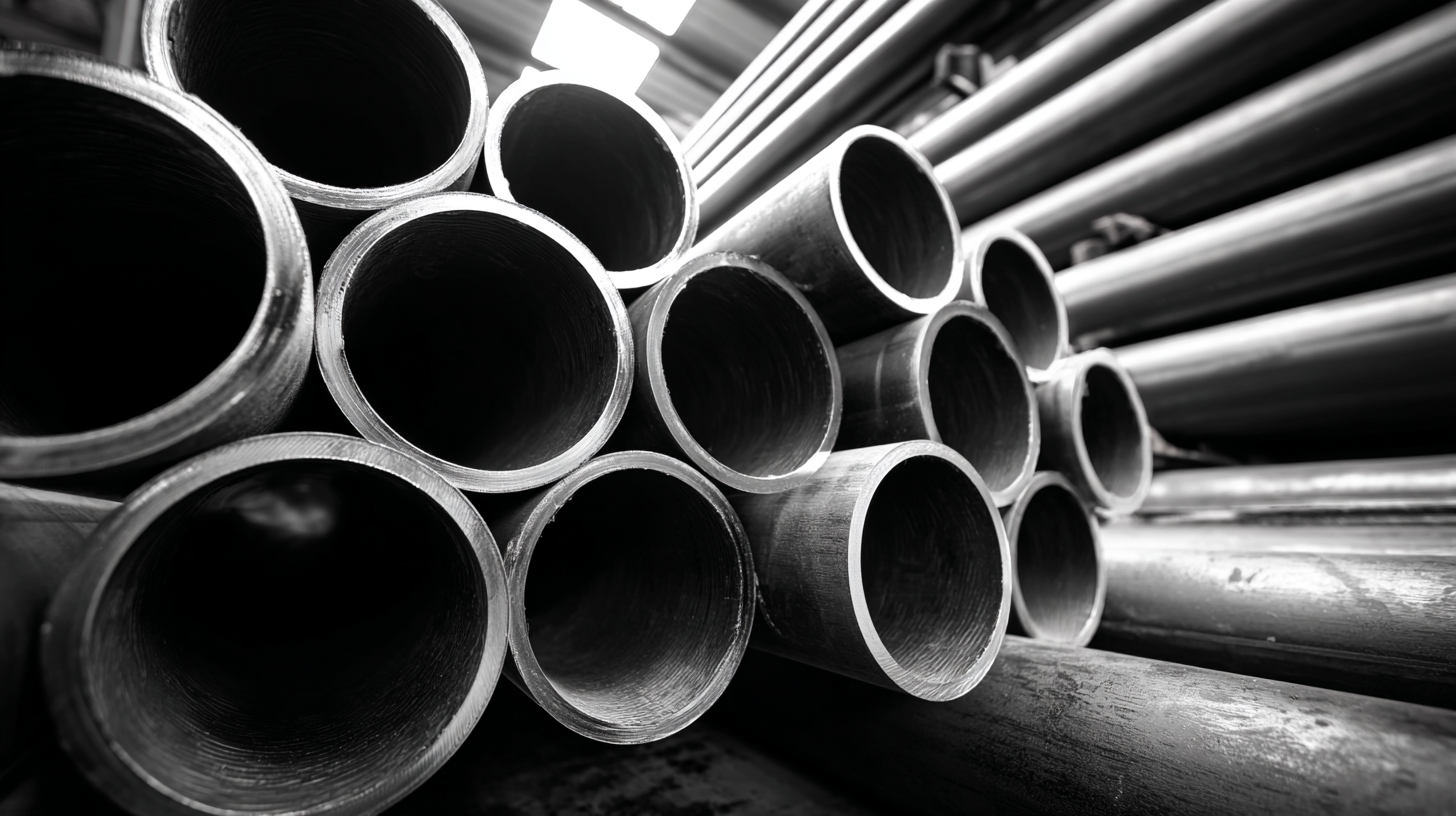
Furthermore, the durability and performance of carbon pipe are noteworthy. These pipes not only reduce the need for frequent replacements but also minimize disruption to ecosystems due to their extended service life. A sustainability assessment in freshwater supply systems highlighted that materials with higher longevity and lower maintenance needs contribute significantly to reducing overall environmental degradation.
As the construction sector evolves, the shift toward sustainable materials, particularly carbon pipes, marks an important step in creating a more resilient and environmentally friendly infrastructure. Reports underscore that with ongoing innovations, the potential for carbon solutions to lead in sustainable practices continues to rise, placing emphasis on the urgent need for the adoption of such materials across new construction projects.
